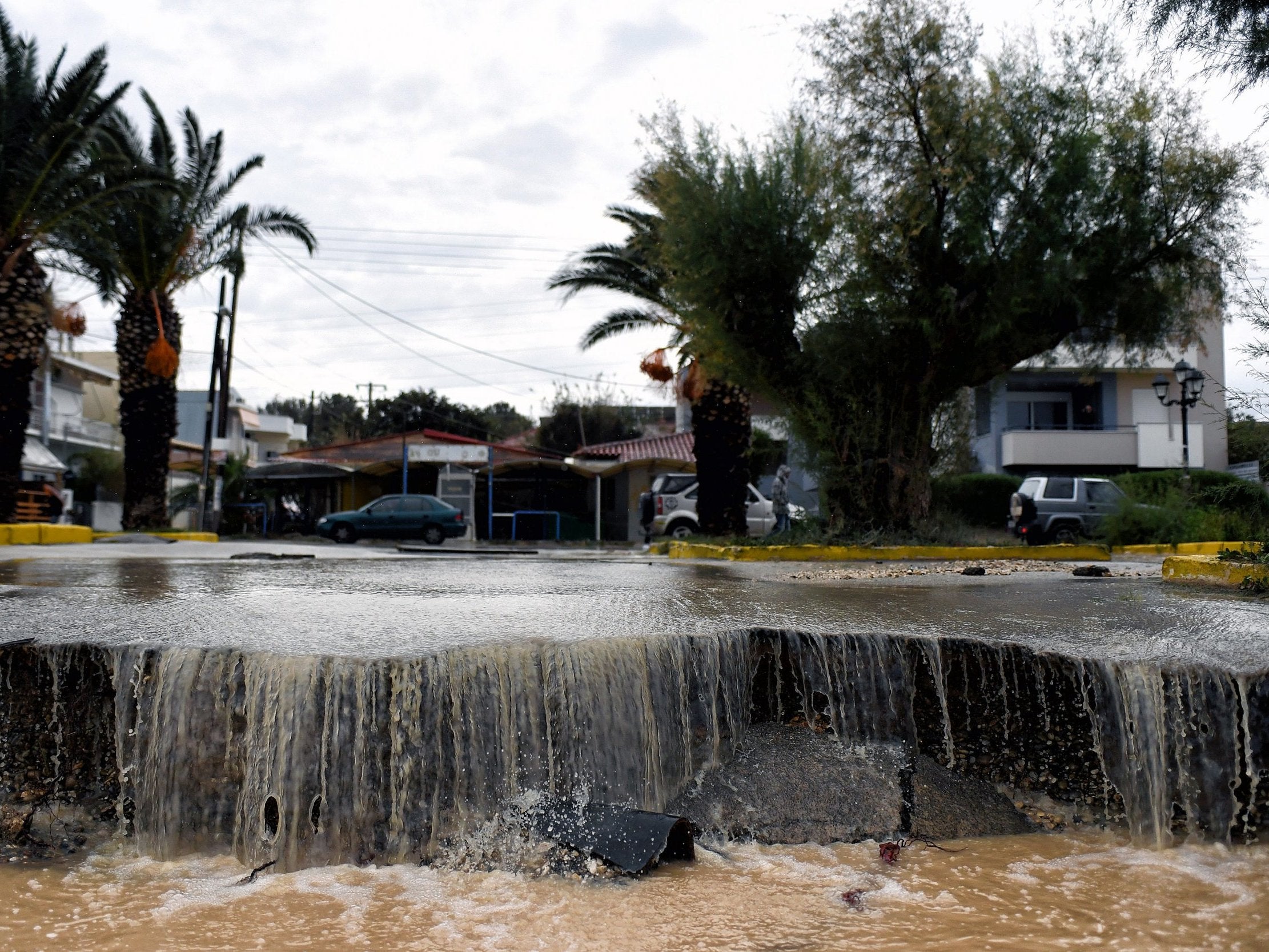'Medicane' Zorba: Three missing in Greece as cyclone brings flash flooding and heavy rain
Ships held in ports, traffic disrupted and hundreds left without power as storm batters country

Your support helps us to tell the story
From reproductive rights to climate change to Big Tech, The Independent is on the ground when the story is developing. Whether it's investigating the financials of Elon Musk's pro-Trump PAC or producing our latest documentary, 'The A Word', which shines a light on the American women fighting for reproductive rights, we know how important it is to parse out the facts from the messaging.
At such a critical moment in US history, we need reporters on the ground. Your donation allows us to keep sending journalists to speak to both sides of the story.
The Independent is trusted by Americans across the entire political spectrum. And unlike many other quality news outlets, we choose not to lock Americans out of our reporting and analysis with paywalls. We believe quality journalism should be available to everyone, paid for by those who can afford it.
Your support makes all the difference.Three people have been reported missing Greece after a rare and powerful Mediterranean storm known brought gale-force winds and flash flooding to several parts of the country.
Known as a medicane - a combination of the words Mediterranean and hurricane - storm Zorba has mostly affected areas on the island of Evia, east of mainland Greece, where a young man and a middle aged couple were reported missing by state TV.
The civil protection service said it had launched a search and rescue operation near the town of Mantoudi.
The southern Peloponnese peninsula was also affected and forecasters predicted it would move towards parts of northern and northeast Greece.
As a the storm raged ships were held at Greece’s main ports and traffic was disrupted in many other areas across the country as roads heavy rain flooded roads.
Gale-force winds also led to power cuts and falling trees across the country.
Firefighters received hundreds of calls for assistance to help evacuate people trapped in cars and flooded homes and to remove downed trees and other debris.
TV footage showed flooded streets turned into rivers in the wider area of Corinth in the Peloponnese and massive sea waves crashing into the shores of coastal towns in the region.
“The Peloponnese is holding on despite the impact and the side effects of this extreme weather phenomenon,” regional governor Petros Tatoulis said, adding that homes, fields and state infrastructure had suffered damage.
Temperatures plunged unexpectedly by up to 10C this week, while wind speeds topped 56mph in several areas and were forecast to intensify.
On the island of Lesbos, authorities requested buses to be ready to move refugees from the overcrowded Moria camp, especially those living in tents, and a last-minute effort was being made to find ways to house refugees.
The civil protection service warned that northern and central Greece could also be affected on Sunday and called on citizens to take self-protection measures.
Authorities were also concerned that the tropical storm could bring mudslides and floods in the wider Athens area, which was recently hit by deadly fires and flash floods.
In August blazes in the area of Mati killed at least 99 people. Last year 24 people were killed and scores were left homeless after a rain-swollen torrent swept through two coastal towns west of the capital.
Additional reporting by agencies
Join our commenting forum
Join thought-provoking conversations, follow other Independent readers and see their replies
Comments